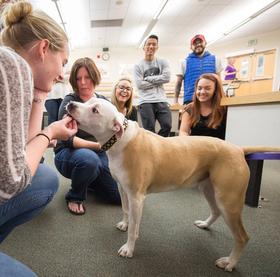The current economic slowdown has displaced many American workers, but that doesn't mean there are not any jobs available today. In fact, numerous industries are hard-pressed to find employees who are trained and ready to work in their fields. The solution has been presented by many community colleges across the country: accelerated job training programs that get displaced workers off the unemployment line and back to work in new industries with better potential for stability and job growth.
Program Cost and Requirements
Some of the programs charge a nominal fee to complete, while others are completely free to participants because they are supported by the American Recovery and Reinvestment Act of 2009 (ARRA). The ARRA is the stimulus package signed by President Obama, designed to combat the effects of the current recession. Part of the ARRA budget is used to retrain workers for other fields when they have lost their jobs because of the economic slowdown. If a program falls into the guidelines of the ARRA, the courses may be offered free of charge to the student, since the federal government picks up the tab.
This video explains how the ARRA works.
Courses not covered by the ARRA may also be offered for a nominal fee. Depending on the program and the community college in question, costs may range from a few hundred to a few thousand dollars. Some programs are completed in as little as three weeks, while others take up to 16 weeks to finish. Many have screening requirements and entry tests, and the competition to get into the programs may be fierce. According to the Fairfax County Times, as reported by the Washington Post, a program to train teachers at Northern Virginia Community College will select just 180 out of the 300 applicants this year.
Success in St. Louis
One city that has driven the accelerated job training programs in St. Louis, Missouri. Faced with many displaced workers from plant closings and trade-related layoffs, this city sees job retraining as the key to Missouri's economic recovery. An article by the Federal Reserve Bank of St. Louis describes many of the job training programs available in Missouri today. Some of the options include:
- Green and environmental jobs
- Careers in business applications
- Information management jobs
- Careers in the health care industry
According to St. Louis Community College, employer-specific, green jobs, and some health care programs are free of charge. Other programs charge a fee, which ranges from around $600 to nearly $5,000, depending on the length and supply needs of the course. Displaced worker funding may be available for qualifying individuals.
Julie Gibson, director of workforce development for the Missouri Department of Economic Development said in the article, "We want to do all that we can to have a highly trained workforce to meet the high growth needs in the future."
Other states may provide training in other industries, depending on their current and predicted future needs. Assessments may be made based on the potential growth of a particular industry, the retirement numbers for the current workforce, or a combination of the two.
This video explains how The American Recovery and Reinvestment Act (ARRA) provides educators with a historic opportunity to build a brighter future for students, teachers, and schools.
Training Teachers in Virginia
Virginia is facing a shortage of public school teachers right now, and community colleges across the state are stepping up to the plate to replenish the workforce, according to the Fairfax County Times. The program, dubbed Career Switchers, is offered at 11 institutions, including Northern Virginia Community College. According to the article, the program has attracted applicants from a wide range of industries, including medical, legal and engineering industries.
The program takes 16 weeks to complete, and most applicants agree the accelerated courses require plenty of time and attention. Alice Burbank, the mother of two teenagers and a former museum administrator, told the Fairfax County Times, "The program was very intense." Not all graduates are finding work right out of the program, but the school says that the work should pick up within the next few years, as about 33,000 educators in the area are expected to retire.
Job Training in Seattle
Another city that is finding accelerated programs to be a good option for those who want to switch career gears is Seattle. South Seattle Community College is offering short-term worker training programs. The website refers to Short-Term Training as "a partnership that considers for employment those applicants trained in a particular program funded by the State of Washington." Most of the training programs take anywhere from 12 weeks to six months to complete and may lead to specific careers and even job placement.
Displaced workers now have many more options, thanks to programs offered through community colleges today. To find accelerated training programs in your area, contact the community colleges nearby or search the Internet for online programs.
Questions? Contact us on Facebook. @communitycollegereview













